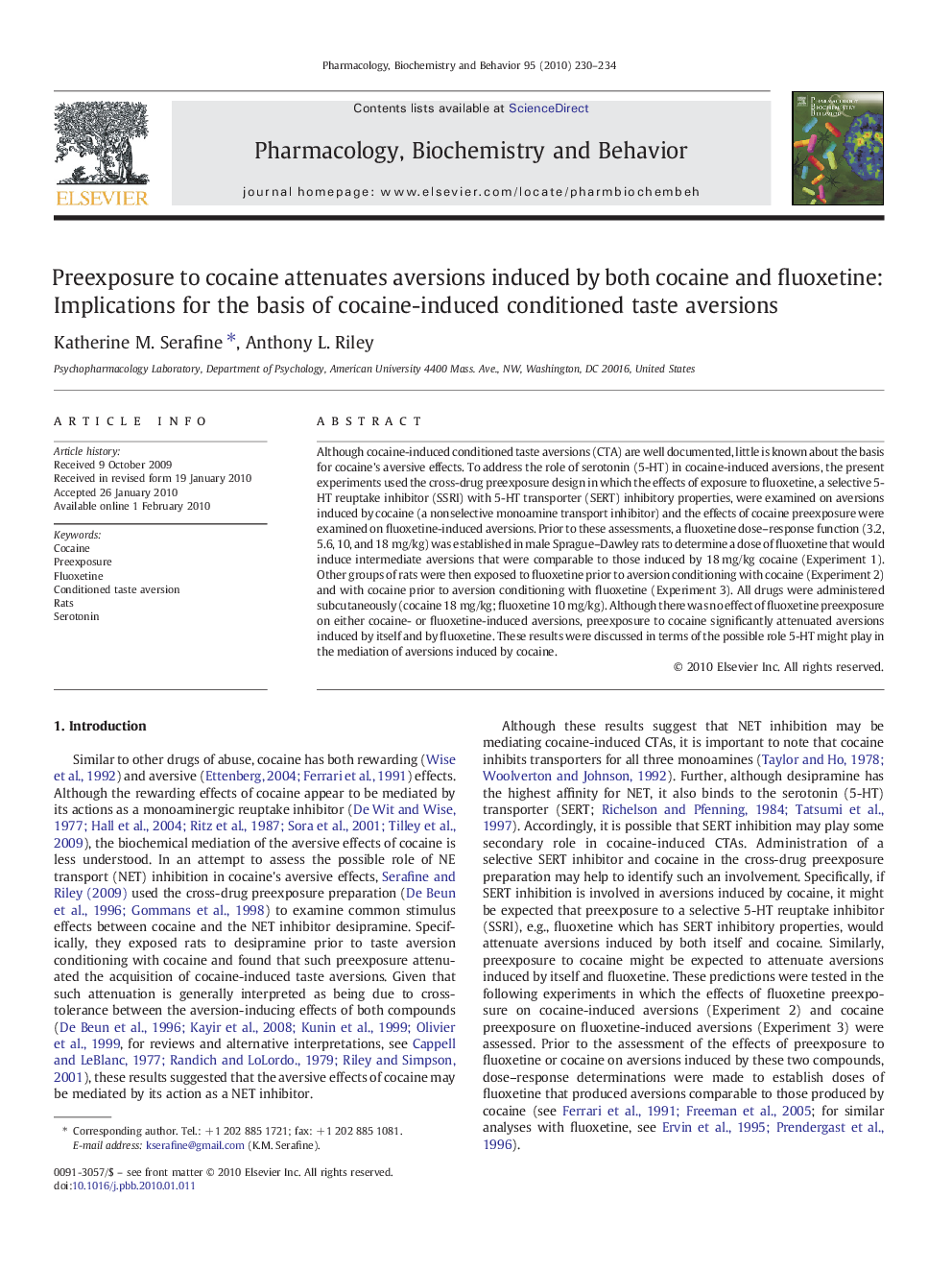| Article ID | Journal | Published Year | Pages | File Type |
|---|---|---|---|---|
| 2013439 | Pharmacology Biochemistry and Behavior | 2010 | 5 Pages |
Abstract
Although cocaine-induced conditioned taste aversions (CTA) are well documented, little is known about the basis for cocaine's aversive effects. To address the role of serotonin (5-HT) in cocaine-induced aversions, the present experiments used the cross-drug preexposure design in which the effects of exposure to fluoxetine, a selective 5-HT reuptake inhibitor (SSRI) with 5-HT transporter (SERT) inhibitory properties, were examined on aversions induced by cocaine (a nonselective monoamine transport inhibitor) and the effects of cocaine preexposure were examined on fluoxetine-induced aversions. Prior to these assessments, a fluoxetine dose-response function (3.2, 5.6, 10, and 18Â mg/kg) was established in male Sprague-Dawley rats to determine a dose of fluoxetine that would induce intermediate aversions that were comparable to those induced by 18Â mg/kg cocaine (Experiment 1). Other groups of rats were then exposed to fluoxetine prior to aversion conditioning with cocaine (Experiment 2) and with cocaine prior to aversion conditioning with fluoxetine (Experiment 3). All drugs were administered subcutaneously (cocaine 18Â mg/kg; fluoxetine 10Â mg/kg). Although there was no effect of fluoxetine preexposure on either cocaine- or fluoxetine-induced aversions, preexposure to cocaine significantly attenuated aversions induced by itself and by fluoxetine. These results were discussed in terms of the possible role 5-HT might play in the mediation of aversions induced by cocaine.
Related Topics
Life Sciences
Biochemistry, Genetics and Molecular Biology
Biochemistry
Authors
Katherine M. Serafine, Anthony L. Riley,
